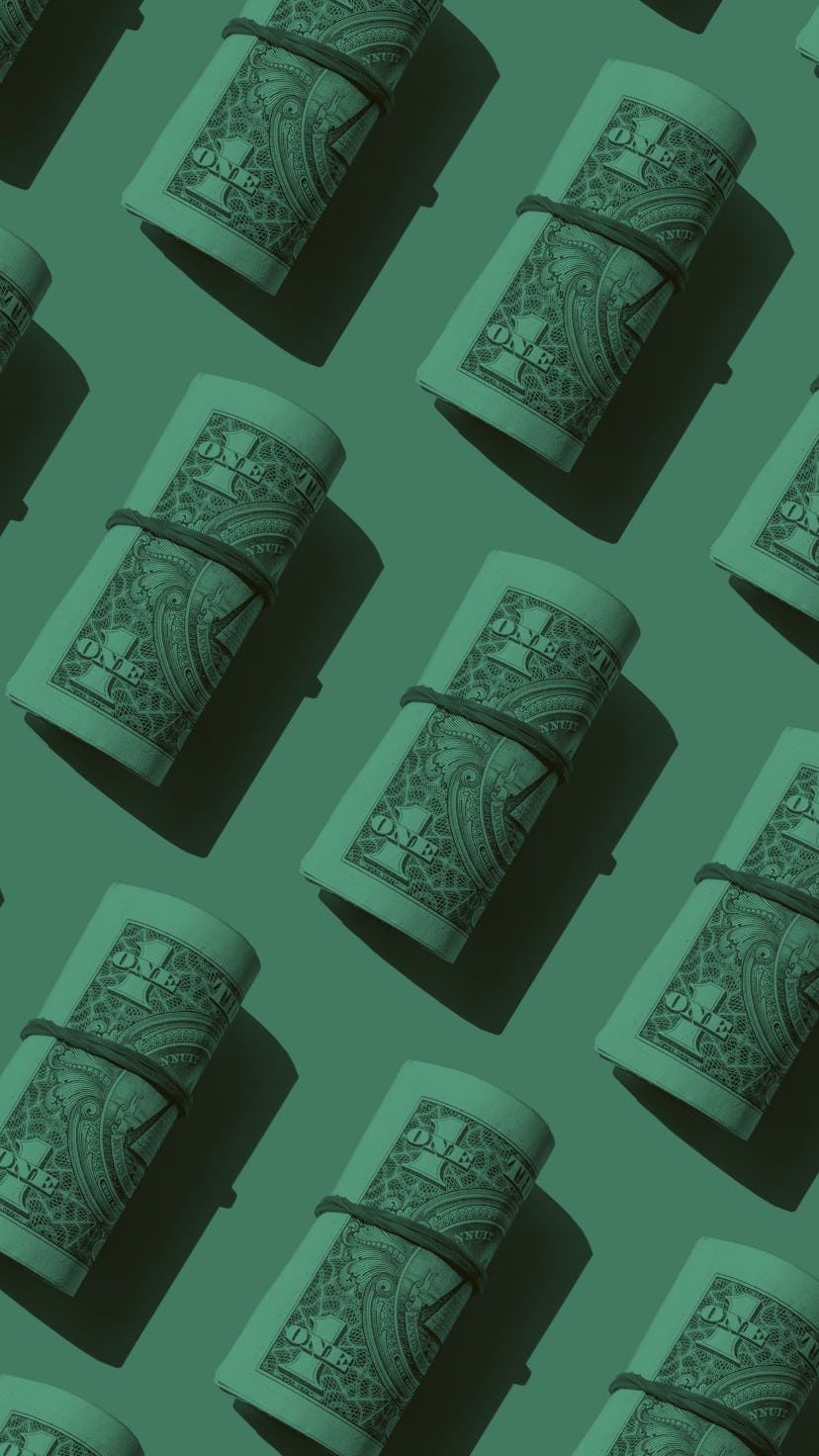Spending guilt is real for BIPOC — even if we've got money

My current laptop is missing two keys, has a badly chipped corner, freezes often, and occasionally restarts without warning — yet I've been holding out on buying a new one. It's not that I can't afford a new one. I just figure that this one still functions, so why spend the money?
For as long as I’ve been earning income, spending has tended to trigger a wave of guilt. Even if my bank account can handle it, I’m reluctant to buy more than what I absolutely need in order to survive — not even indulgent, luxury purchases, but purchases that’ll just make my life a little easier, like a drawer organizer for my kitchen, a hand mixer for baking, or a laptop that doesn't suddenly restart when I'm in the midst of drafting a story. You should save that money for an emergency, an inner voice says.
But spending guilt is especially loaded for BIPOC like me, according to Michigan-based financial therapist Lindsay Bryan-Podvin, for several reasons. Here's a breakdown of why we, as people of color, tend to experience spending guilt so acutely — plus advice on how to overcome it.
Spending guilt can take a number of forms, whether it’s guilt over spending beyond what you’d initially anticipated, or spending when you hadn’t even planned to do so, Bryan-Podvin tells me. Simply put, “it’s feeling bad about having spent money on something, and you can define what that means for you.”
While spending guilt can look the same in BIPOC and white folx, Bryan-Podvin sees it intensified in the former. In our communities, there’s often a narrative that it’s important to hold onto our money, which can stem from trauma, or what we or our family members learned would keep us safe. BIPOC who’ve experienced stressors have learned that “having money readily available to you is a tool of power and an agent of change,” Bryan-Podvin says.
An ample emergency fund affords us the ability to move if our neighborhood is no longer safe, buy food and other essentials, or support struggling family members. “It’s a very literal Maslow’s Hierarchy of Needs,” she explains. “It’s food, shelter, clothing.”
Our families often reinforce how we spend. They might instill in us the belief that a financial cushion will keep us safe, Bryan-Podvin explains, or what qualifies as “acceptable” ways to spend. Depending on our families, they might directly guilt-trip us with comments like, “You think you’re better than us, spending money that way (rather than how we think you should).”
Or, they might make passive-aggressive remarks, like “There goes so-and-so again, spending money on clothes,” or push back on travel that doesn’t include them. My parents rarely judged my sisters or me for our purchases, but would ask, “Do you really need it?” when we hinted at coveting something, no matter how cheap. Their stories about the uncertainty they faced when they immigrated to the U.S. also ingrained in me the importance of saving, just in case.
Bryan-Podvin adds that our families might also nudge us toward buying only certain brands, such as those that make us seem more or less assimilated. In Michigan, where she lives, driving a Ford, GM, or Chrysler car can help you to fit into the Midwest and “signal to other people that you’re really American, that you support American, that you buy American. There’s a level of safety there in purchasing one of those three types of vehicles,” especially for BIPOC.
While these restrictive spending habits might be intended to protect us, they can hurt our mental health in the long run. Yes, having a certain amount of money can help provide a sense of safety and security, Bryan-Podvin says. But when we hold on so tightly to it that we don’t enjoy it, or spending automatically comes with second-guessing or guilt, “it can absolutely increase your anxiety around spending and make it less likely that you actually enjoy the things you purchase.”
And when we associate spending with guilt, that externally-directed guilt (“I did something bad”) can escalate into more menacing, internally-directed shame (“I am bad”), she adds. We might think we’re terrible with money, or that we can’t be trusted with it, “and that’s where we can get into those really dark cycles.” She brings up a good point: “If you’re going to spend money on something anyway, why not make it enjoyable and fun, so that you can make that money go further, not just from a literal standpoint, but from a mental health standpoint?”
How can BIPOC overcome their spending guilt? Bryan-Podvin suggests checking in with yourself. Be curious about when do you notice it surface, and create an index of what sorts of purchases make you feel guilty. Imagine what it would feel like if you spent money on those things without the guilt. At the same time, remind yourself that “there’s a reason you probably feel guilty. It was built into you to stay safe…. You can thank that part of your brain for trying to keep you safe and acknowledge that you actually are safe, and it’s ok to spend.”
Say you want to buy a pair of shoes. You can say something like “Thank you, anxious brain, for not wanting me to spend money on these new shoes. The good news is, I’ve got money in my checking account, I can afford it, and I’m excited to buy them.”
It’s also important to seek support from others who understand your spending guilt, Bryan-Podvin adds. By validating your experience, they can help normalize it, which can then allow you to take the necessary steps to dial back your guilt.
Attention, brain: Thanks for the alarm, but I’ve budgeted for items like a reliable laptop, which is pretty integral to my work. I'm going to buy a replacement, and I'm going to be ok.